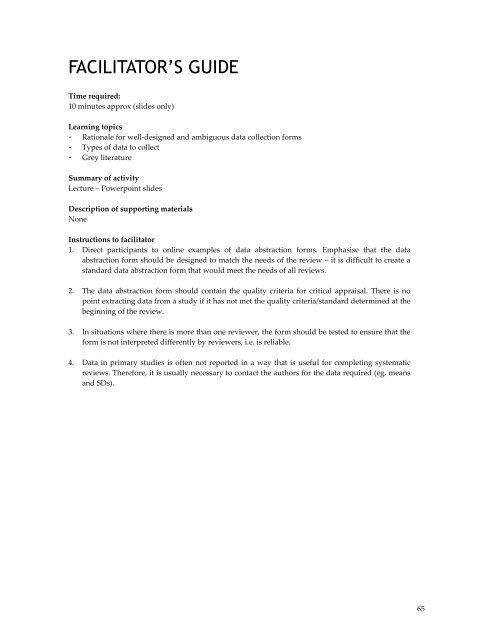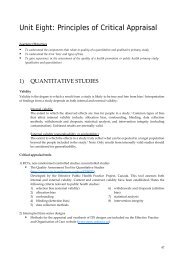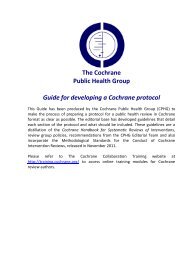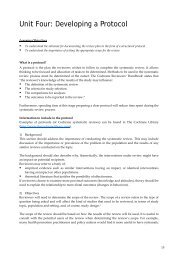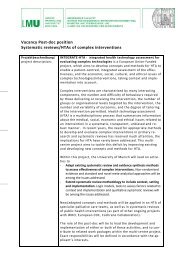Train the Trainer Course book - Cochrane Public Health Group
Train the Trainer Course book - Cochrane Public Health Group
Train the Trainer Course book - Cochrane Public Health Group
Create successful ePaper yourself
Turn your PDF publications into a flip-book with our unique Google optimized e-Paper software.
FACILITATOR’S GUIDE<br />
Time required:<br />
10 minutes approx (slides only)<br />
Learning topics<br />
- Rationale for well-designed and ambiguous data collection forms<br />
- Types of data to collect<br />
- Grey literature<br />
Summary of activity<br />
Lecture – Powerpoint slides<br />
Description of supporting materials<br />
None<br />
Instructions to facilitator<br />
1. Direct participants to online examples of data abstraction forms. Emphasise that <strong>the</strong> data<br />
abstraction form should be designed to match <strong>the</strong> needs of <strong>the</strong> review – it is difficult to create a<br />
standard data abstraction form that would meet <strong>the</strong> needs of all reviews.<br />
2. The data abstraction form should contain <strong>the</strong> quality criteria for critical appraisal. There is no<br />
point extracting data from a study if it has not met <strong>the</strong> quality criteria/standard determined at <strong>the</strong><br />
beginning of <strong>the</strong> review.<br />
3. In situations where <strong>the</strong>re is more than one reviewer, <strong>the</strong> form should be tested to ensure that <strong>the</strong><br />
form is not interpreted differently by reviewers, i.e. is reliable.<br />
4. Data in primary studies is often not reported in a way that is useful for completing systematic<br />
reviews. Therefore, it is usually necessary to contact <strong>the</strong> authors for <strong>the</strong> data required (eg. means<br />
and SDs).<br />
65


